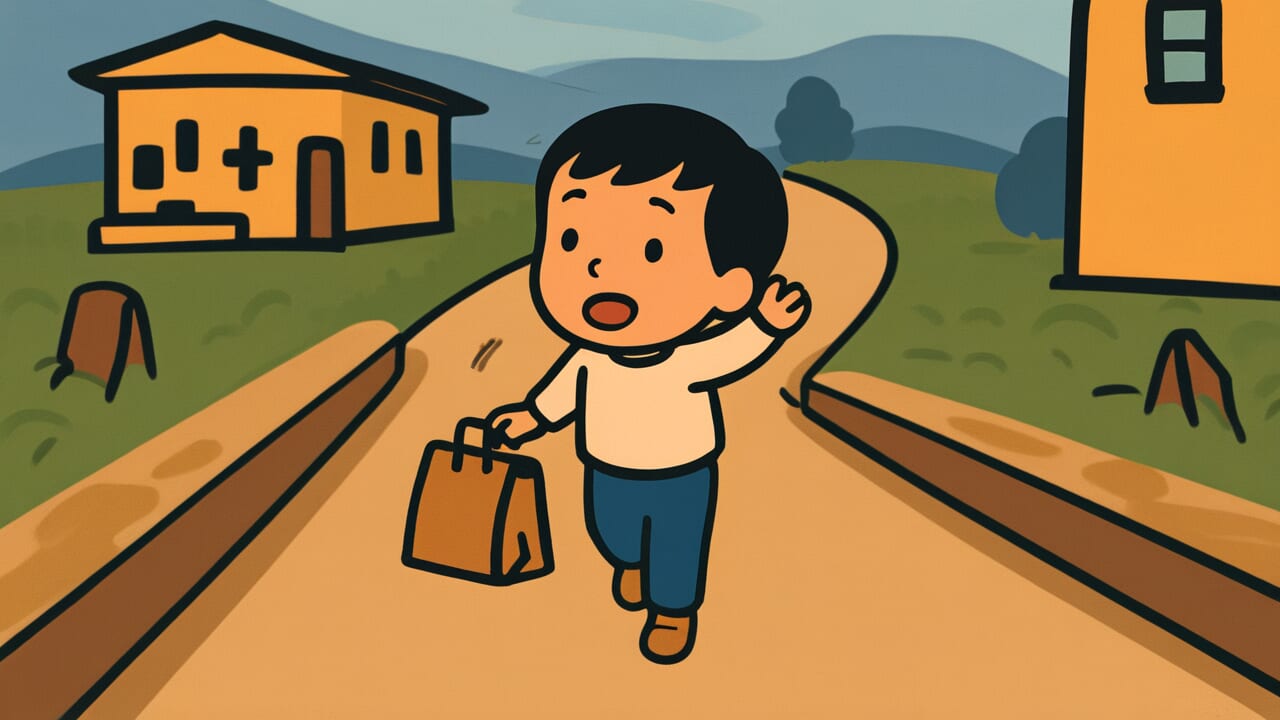How to Read “Abandoned children make their way in the world”
Sutego wa yo ni deru
Meaning of “Abandoned children make their way in the world”
“Abandoned children make their way in the world” means that people who face unfortunate circumstances are more likely to achieve great success in life.
It expresses a paradoxical truth: those who start with no parents, wealth, or status often become admirable people.
This proverb is used to encourage people in difficult situations. It’s also used when recognizing the potential of someone facing adversity.
The saying tells people in tough circumstances that “your situation might actually make you stronger and lead you to success.” It offers hope to those who need it most.
Even today, we see many examples of people who struggled becoming more successful than those from wealthy families. When you have nothing to rely on, you develop independence.
An environment that doesn’t allow you to be spoiled trains you to be strong. This proverb teaches us not to lament unfortunate circumstances.
Instead, it shows us how to view hardship as fuel for growth and face life with a positive attitude.
Origin and Etymology
No clear written records document the exact origin of this proverb. However, we can understand how it developed by looking at its structure and Japanese social history.
The term “sutego” (abandoned child) refers to children whose parents left them behind. Before and during the Edo period, poverty and family circumstances sometimes forced people to give up their children.
Children left at temple or shrine gates were sometimes taken in by merchant families or craftsmen. These children were then raised as adopted sons or daughters.
What’s interesting is that children from these circumstances often achieved remarkable success in life. Without a blood relationship, adoptive parents disciplined them strictly.
The children worked desperately hard to repay this kindness. With no blood relatives to depend on, they had no choice but to forge their own path.
This determination may have made them stronger. The proverb likely emerged from observing these social patterns.
Our ancestors recognized a paradoxical truth: unfortunate circumstances can actually train people and become the driving force for great achievement.
This saying contains a harsh yet hopeful view of life. It suggests that adversity, rather than privilege, helps people grow.
Usage Examples
- He lost both parents as a child and moved between relatives’ homes, but “Abandoned children make their way in the world” proved true—now he’s a successful company president
- The fact that struggling students often succeed more than pampered heirs shows that “Abandoned children make their way in the world”
Universal Wisdom
“Abandoned children make their way in the world” contains a deep truth about human growth. Why do people from unfortunate circumstances often achieve great things?
It’s because humans are fundamentally “creatures who grow when necessity demands it.” When everything is provided, there’s no need to think, innovate, or work hard.
But those who have nothing must use their wits to survive. They work many times harder than others and seize every opportunity that comes their way.
This urgency polishes and refines a person. People with nothing to rely on have no choice but to believe in themselves.
This “self-reliance” becomes the source of courage to face difficulties. People in comfortable environments often avoid challenges because they fear failure.
But those with nothing to lose can take bold risks. Furthermore, people who know suffering can understand others’ pain.
This empathy attracts people, creates collaborators, and eventually leads to great success. Our ancestors embedded this wisdom in these words.
They knew that mental strength, not material wealth, is what opens up life’s possibilities. Adversity isn’t a curse—it can actually be a blessing.
When AI Hears This
Compare a tree growing in the forest center with one growing at the forest edge, and you’ll see fascinating differences.
Trees in the center are protected by companions and remain stable. But they can only adapt to limited environments.
Trees at the edge face strong winds and dramatic changes in sunlight. This seems disadvantageous at first glance.
However, ecological research shows that edge trees develop deeper roots, thicker trunks, and greater resistance to drought and wind.
This phenomenon is called the “edge effect.” It demonstrates how adversity gives organisms diverse adaptive abilities.
For example, finches in the Galapagos Islands evolved different beak shapes on harsher islands with less food. This allowed them to eat a wider variety of foods.
In other words, protected environments provide stability but narrow the range of adaptation. The same pattern appears in human society.
Children without parental protection must build diverse human relationships on their own. They’re forced to learn various problem-solving methods.
This isn’t ability optimized for one environment. It’s universal strength that allows survival in any environment.
Ecology teaches us that being pushed from the center is actually powerful pressure that promotes diversification of survival strategies.
Lessons for Today
This proverb teaches modern people to live without using their current circumstances as an excuse. Don’t lament not being in a privileged environment.
Instead, try viewing your situation as a training ground that makes you stronger.
In modern society, social media shows us others’ privileged lives. You might feel down comparing their circumstances to yours.
But superficial wealth and true human strength are different things. Difficult situations let you sharpen problem-solving skills and build mental toughness.
What matters is not resenting misfortune but using it as fuel for growth. Today’s struggles become tomorrow’s foundation supporting you.
If you can’t rely on parents’ wealth or status, just develop your own abilities. You don’t need to fear failure either.
Having little to lose means you have freedom to take on challenges. Your current circumstances aren’t a handicap at all.
They’re actually a hidden strength for future success.



Comments